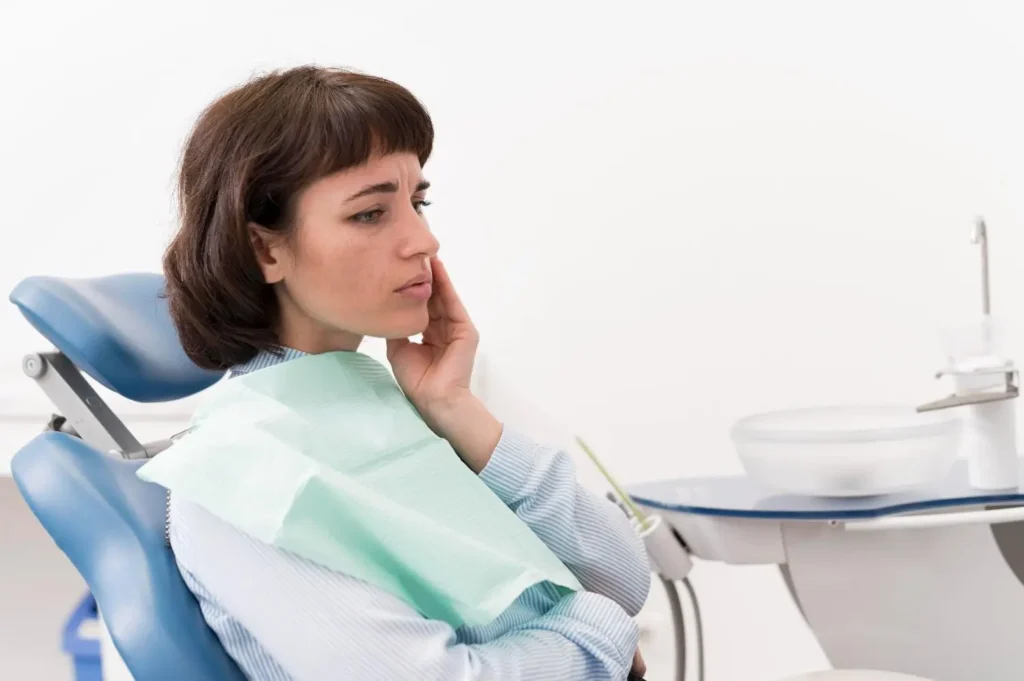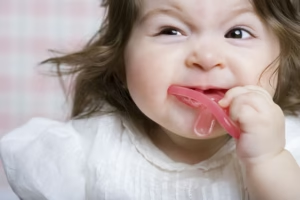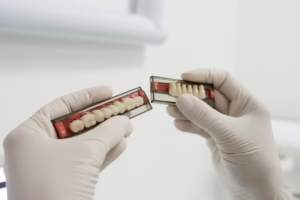What is tooth extraction and when is it needed?
A tooth extraction is a medical procedure in which a tooth is completely removed from the bone socket. This procedure is usually performed under local or general anesthesia, depending on the case. A dentist may decide to extract a tooth for several reasons, including:
- Deep decay has reached the roots of the tooth and is no longer treatable.
- Severe gum disease.
- Exposure to a severe injury or partial dislocation.
- A tooth fracture that is difficult to repair.
- tooth buried under the gum
- crowded teeth
Is tooth extraction very painful?
Tooth extraction is performed under anesthesia, so the patient feels no pain during the procedure. However, after the anesthesia wears off, the patient may experience some pain or discomfort, which can be controlled with painkillers prescribed by the doctor. Some patients experience psychological anxiety before the procedure, but a good medical team is always keen to alleviate this stress.
Tooth extraction healing time: What’s normal and what’s not
Tooth extraction healing time varies from person to person depending on several factors, but in general:
- Most people recover within a few days.
- Jawbone healing may take several weeks.
- It may take a few months for the bone to fully heal.
- If you are planning to have a replacement tooth implanted, you may need to wait until it heals completely, often within a few months.
How long does it take the hole to close after tooth extraction?
The cavity resulting from a tooth extraction usually begins to close within two to three weeks. In some cases, healing may be delayed if problems such as infection or a weakened immune system are present.
Factors that affect healing time
- Type of extracted tooth
- The patient’s general health condition.
- Having chronic diseases such as diabetes.
- Follow your doctor’s instructions carefully after the extraction.
Common tooth extraction complications
Although tooth extraction is a safe procedure in most cases, there are some potential tooth extraction complications to watch out for, such as infection after extraction, nerve injury, or dry socket.
Signs you should call your dentist
You should contact your dentist in the following cases:
- Severe pain that does not go away with painkillers.
- Foul odor or pus.
- Excessive swelling or persistent bleeding.
- High temperature or fever.
How to prevent infection or dry socket?
One of the most important complications that may occur is dry socket, which occurs in the following cases:
- The blood clot has not formed or has dislodged.
- Not cleaning the mouth well.
- Smoking or using nicotine products.
- Presence of infection or trauma at the extraction site.
- Taking birth control pills.
Things to avoid after tooth extraction
After tooth extraction, there are some habits that may delay healing or lead to complications.
Foods, activities & habits to stay away from
You must:
- Place a piece of gauze on the extraction site for at least 30 minutes.
- Maintain oral hygiene by gargling with warm salt water.
- Ensure rest and reduce physical effort.
- Eat soft foods such as yogurt, mashed potatoes, soup, and bananas.
- Use pain relievers as directed by your doctor.
- Drink plenty of room temperature water.
- Use cold compresses on the cheek to reduce swelling.
- Avoid rinsing your mouth vigorously on the first day, so that the clot does not disintegrate.
- Avoid hot drinks or alcohol.
- If you can, don’t sneeze or blow your nose.
- When you sleep, keep your head up a little.
Smoking, straws, and other common mistakes
Smoking leads to dry socket, which is one of the most common and serious complications. Using a suction cup may also dislodge a blood clot from the extraction site. Therefore, smoking or using tobacco products should be avoided for at least three days. Avoid suctioning with a straw or spitting.
Do’s and don’ts after tooth extraction
What to do after tooth extraction:
- Leave the gauze the doctor placed in place for at least two hours.
- Complete rest for the first 24 hours.
- Apply cold compresses to reduce swelling.
- Drink cold liquids and soft drinks.
- Use pain relievers as prescribed by your doctor.
What to avoid after tooth extraction:
- smoking
- Rinse your mouth vigorously for the first 24 hours.
- Touching the dislocation site with the tongue or hand.
- Exercising or lifting heavy objects.
- Use thread at the extraction site.
- Very hot or cold drinks in the first days.
- Solid, spicy, or very hot foods.
- Use a vacuum.
When to contact your dentist post-extraction?
Call your doctor if you notice any of the following:
- Severe or increasing swelling after 3 days.
- New or severe pain.
- Seeing the bone at the site of the dislocation.
- Continuous bleeding after several hours.
- Purulent discharge or bad taste in the mouth.
- Fever or chills.
- Nausea or vomiting.
- Permanent numbness or injury to adjacent teeth.
- Significant delay in wound healing or failure of the gap to shrink after 4 days.
- Presence of an opening in the sinuses (in case of extraction of posterior molars in the upper jaw).
In conclusion, tooth extraction is not a cause for concern as long as it is performed under the supervision of a qualified doctor. Adhering to medical instructions can reduce tooth extraction complications and significantly speed up tooth extraction healing time. Maintain your oral health and consult your doctor if you experience any unusual symptoms, as post-extraction care is just as important as the procedure itself.
Begin your journey to a perfect smile with Perfect Smile Dental Center, where expertise, technology, and genuine care combine. We offer dental care services tailored to your unique needs. We’re here for your health and comfort: personalized care, quick appointments, and building genuine relationships with every patient.
People also ask
Is it normal to have pain after tooth extraction?
Yes, it is normal to have mild to moderate pain for the first two days, which will gradually subside.
When can I eat after tooth extraction?
It is best to wait one to two hours for the anesthesia to wear off, then start with cool liquids and soft foods.
Is it necessary to take antibiotics after tooth extraction?
Antibiotics are not necessary in all cases, but if signs of infection appear, they will be prescribed by a doctor.





